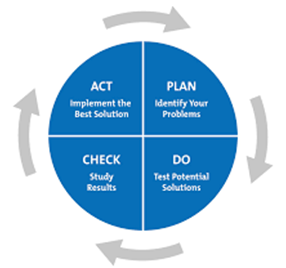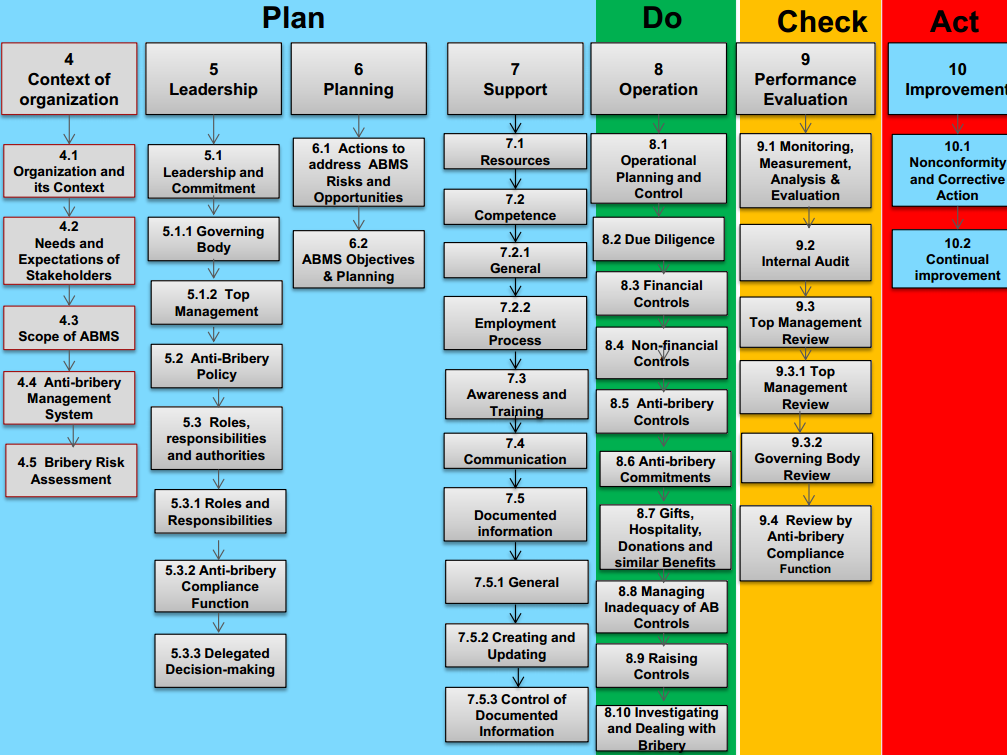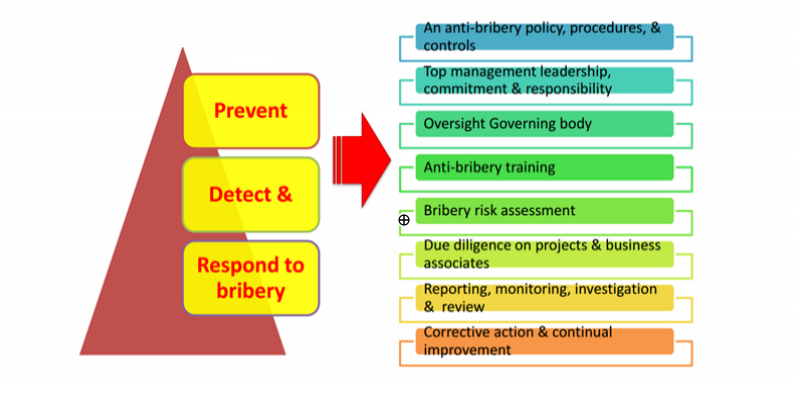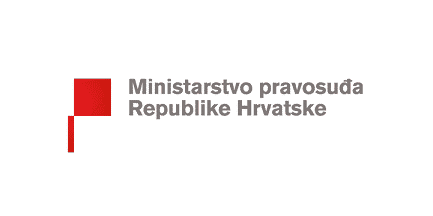Homepage > Consulting > Risks and compliances > Anti-corruption management system (ISO 37001)
Anti-corruption management system (ISO 37001)
What is corruption?
Corruption appears in almost all areas of life and activity, in the public or private sector, from public institutions, politics, the economy, etc. Corruption undermines trust and creates the wrong incentive to act, for example, instead of a person doing the activities he should be doing, he focuses on using its power to the maximum extent and in order to satisfy its own interests.
At the organizational level, corruption seriously impairs organizational effectiveness. When corruption becomes part of the system, it is very difficult to remove it without destroying the organization itself. Effectiveness, public trust and social capital are harmed.

Protection measures against corruption
The strategy for combating corruption (Official Gazette 26/2015) and other accompanying regulations of the Republic of Croatia set the fight against corruption as a permanent task in all segments of our society. It requires a complete, transparent and responsible approach in the detection of weaknesses and risks in this area and the undertaking of appropriate controls.
Applying the requirements of the ISO 37001:2016 standard in the organization establishes an anti-corruption system that meets the stated goals. Its basic purpose is:
design and management of a complete anti-corruption system,
substantial increase in the ability to recognize, detect, address and reduce corruption risks,
the development of policies and anti-corruption procedures that prevent the possibility of corruption and implement the necessary controls,
checks of the internal anti-corruption system through its internal and external audits,
raising awareness of the need for anti-corruption actions and training our own employees for internal anti-corruption activities and their certification.

Anticorruption management system (ISO 37001)

This management system is based on a process approach that includes the Plan-Do-Check-Act cycle (PDCA) and risk management thinking. The process approach enables the organization to plan its processes and their interaction. The ISO 37001 management system is based on the fulfillment of the following groups of requirements: organizational context, leadership, planning, support, implementation, performance evaluation and improvement.
The context of the organization refers to the determination of internal and external circumstances that are relevant to the organization and affect its ability to achieve set management goals.
Leadership includes meeting general requirements, stakeholder requirements, and legal requirements, adopting an anti-corruption policy, planning anti-corruption goals, establishing a management system, and evaluating the effectiveness of the management system.
Planning refers to the identification of risks and opportunities that must be addressed in order to ensure that the anti-corruption management system achieves the intended results and improvements, the establishment of anti-corruption goals and plans for achieving them, and change management.
The support includes the management of the resources necessary for the implementation of the system and the establishment of an education and awareness plan with the aim of increasing the competence of employees and raising awareness regarding effective anti-corruption management.
Implementation includes the implementation of in-depth controls that include decision-making and controls during employment and defining requirements for financial and non-financial controls.
Performance evaluation refers to the monitoring and evaluation of the performance of the management system, i.e. the monitoring of non-compliance and the analysis of data required for improvements, as well as the method of improvement itself.

Why implement the ISO 37001 system?
The ISO 37001 system (ABMS – Anti-bribery management system) is intended to help organizations effectively prevent, detect and respond to corruption. The standard does not include other forms of corruption, such as fraud. The requirements of the standard are generic and applicable to all organizations, regardless of their type, size and sector (public, private or non-profit).
The ISO 37001 system can be applied to organizations of all sizes and types, private or public sector. The standard can be integrated into an existing compliance program (eg ISO 37301 compliance management system) or it can be established as a stand-alone management system.
By implementing the system, organizations gain the following benefits:
Increasing the ability to prevent, detect and address corporate risks:
Increasing the detection of corruption risks
Establishing effective mechanisms for preventing and addressing corruption risks
Improvement of corruption risk assessment procedures
Reduction of costs caused by corruption:
Increasing business performance due to the reduction of various losses caused by corruption
Increasing controls to monitor possible corruption
More efficient monitoring of the flow of transactions
Increasing confidence in the business system:
Application, and especially ABMS certification, increases confidence in the business system
Internal and external audits of the ABMS, which constantly monitor its efficiency and effectiveness
International recognition:
Achieving compliance with international anti-corruption standards
Achieving compliance with other industry standards
Increasing compliance with national and international regulations
Increasing anti-corruption skills:
Increasing staff training for anti-corruption procedures
Increasing anti-corruption culture

How ZIH can help you?
ZIH can be a reliable partner in the development and implementation of the ISO 37001 system through the following consulting services:
Preparation of the ABMS undertaking
ABMS team training
Assessment of the current situation and creation of a GAP analysis in relation to the requirements of the standard
Assessment of corruption risks
Development of anti-corruption controls
Development of anti-corruption policy
Development of anti-corruption procedures
Participation in the implementation of ABMS
Integration of ABMS with other systems (ISO 9001, ISO 27001, …)
Preparations for ISO 37001 system certification (internal audits, elimination of non-conformities, management assessment)
Participation in ABMS certification
Participation in continuous improvements of ABMS
Education in the mentioned field:
- How to establish an anti-corruption system?
- Audit of the anticorruption system
- Certified ISO 37001 Foundation (PECB)
- Certified ISO 37001 Lead Implementer (PECB)
- Certified ISO 37001 Lead Auditor (PECB)
- How to establish a system for reporting irregularities?
- Audit of the whistleblower protection system
- Certified ISO 37002 Introduction
You may also be interested in these services and trainings:
Why ZIH?
ZIH has rich experience in projects that include the preparation of the implementation of the anti-corruption system, that is, the implementation of the situation analysis and the creation of the anti-corruption program with the associated rules.





